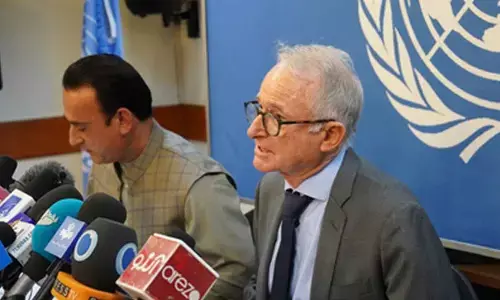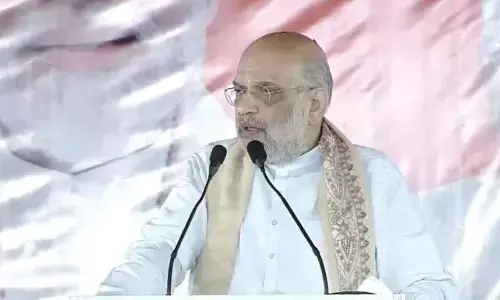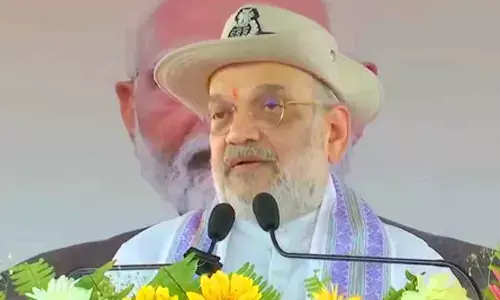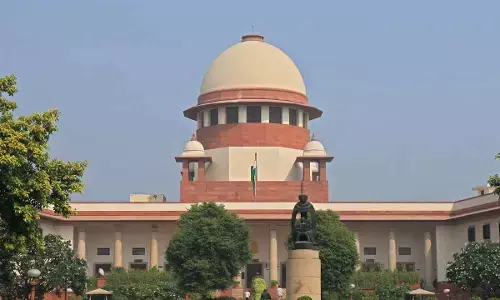Islam's long tradition of sustainability

Muslim communities are addressing environmental impact. The greening of Ramadan fits into a broader conversation about how often communities can tackle climate change within their own frameworks. But Islamic environmentalism is more than just the dispensing of plastic forks and water bottles – it taps into a worldview ingrained in the faith from the outset and can continue to guide adherents as they navigate environmentalism, a space where they may otherwise be marginalized
For many Muslims breaking fast in mosques around the world this Ramadan, something will be missing: plastics. The communal experience of iftars – the after-sunset meal that brings people of the faith together during the holy month starting on March 22, 2023 – often necessitates the use of utensils designed for mass events, such as plastic knives and forks, along with bottles of water. But to encourage Muslims to be more mindful of the impact of Ramadan on the environment, mosques are increasingly dispensing of single-use items, with some banning the use of plastics altogether.
As a historian of Islam, I see this "greening" of Ramadan as entirely in keeping with the traditions of the faith, and in particular the observance of Ramadan. The month – during which observant Muslims must abstain from even a sip of water or food from sun up to sun down – is a time for members of the faith to focus on purifying themselves as individuals against excess and materialism. But in recent years, Muslim communities around the world have used the period to rally around themes of social awareness.
The ban on plastics – a move encouraged by the Muslim Council of Britain as a way for Muslims "to be mindful of [God's] creation and care for the environment" – is just one example. While the move toward environmental consciousness has gained traction in Muslim communities in recent years, the links between Islam and sustainability can be found in the faith's foundational texts.
Scholars have long emphasised principles outlined in the Quran that highlight conservation, reverence for living creatures and the diversity of living things as a reminder of God's creation. The Quran repeatedly emphasises the idea of "mizan," a kind of cosmic and natural balance, and the role of humans as stewards and khalifa, or "viceregents," on Earth – terms that also carry an environmental interpretation. Recently, Islamic environmental activists have highlighted the numerous hadith – sayings of the Prophet Muhammad that provide guidance to followers of the faith – that emphasise that Muslims should avoid excess, respect resources and living things, and consume in moderation.
Although present from the outset of the faith, Islam's ties to environmentalism received major visibility with the works of Iranian philosopher Seyyed Hossein Nasr, and a series of lectures he delivered at the University of Chicago in 1966. The lectures and a subsequent book, "Man and Nature: The Spiritual Crisis in Modern Man," warned that humans had broken their relationship with nature and thus placed themselves in grave ecological danger. Scholars and activists expanded on Nasr's work through the 1980s and 1990s, among them Fazlun Khalid, one of the world's leading voices on Islam and environmentalism. In 1994, Khalid founded the Islamic Foundation for Ecology and Environmental Sciences, an organisation dedicated to the maintenance of the planet as a healthy habitat for all living beings. Khalid and other Muslim environmentalists suggest that Islam's nearly 2 billion adherents can participate in the tasks of environmental sustainability and equity not through Western models and ideologies but from within their own traditions. Environmental crises disproportionately affect the world's poorest populations, and academics have highlighted the particular vulnerabilities of Muslim communities around the world, such as the victims of devastating floods in Pakistan in 2022. By highlighting Islamic principles, policies and community approaches, academics have shown how Islam can represent a model for environmental stewardship. This push for environmental consciousness extends beyond Ramadan. In recent years, Muslims have tried to introduce green practices into the shrine cities in Iraq during pilgrimage seasons in Ashura and Arbaeen. This has included awareness campaigns encouraging the 20 million pilgrims who visit Arbaeen annually to reduce the tons of trash they leave every year that clog up Iraq's waterways.
Muslim communities are addressing environmental impact. The greening of Ramadan fits into a broader conversation about how often communities can tackle climate change within their own frameworks. But Islamic environmentalism is more than just the dispensing of plastic forks and water bottles – it taps into a worldview ingrained in the faith from the outset and can continue to guide adherents as they navigate environmentalism, a space where they may otherwise be marginalized.
(The Conversation; Writer is Assistant Professor of History, University of Maryland, Baltimore County, US)








